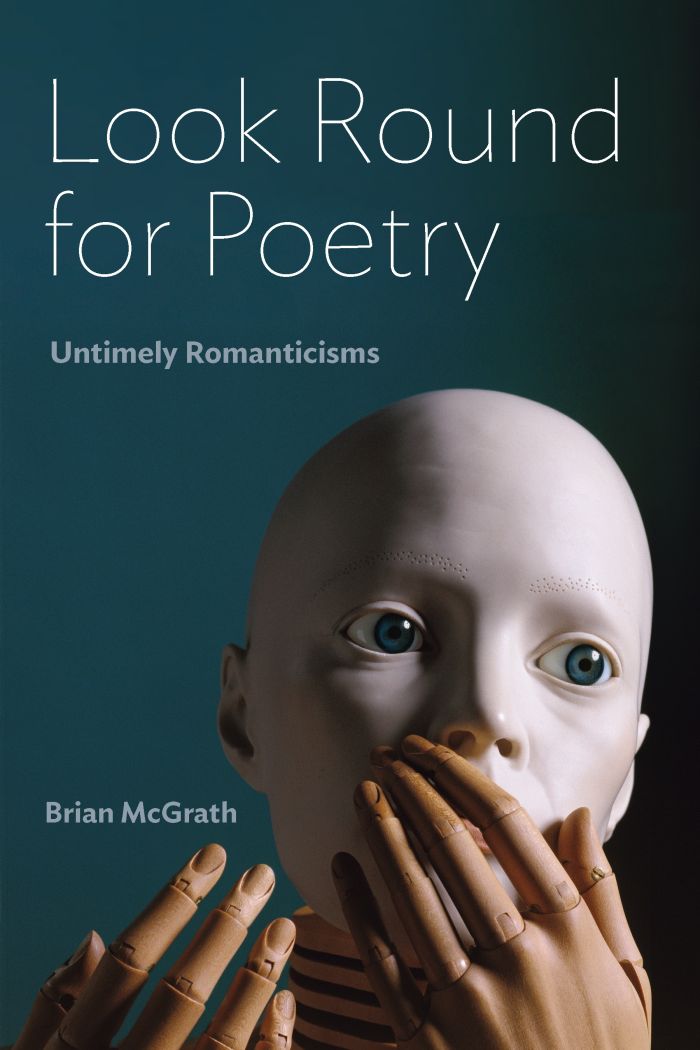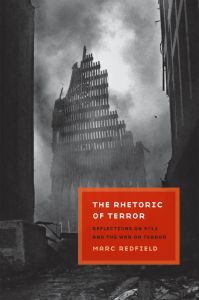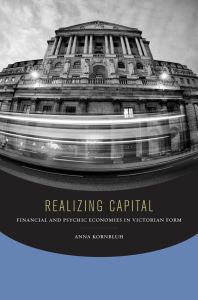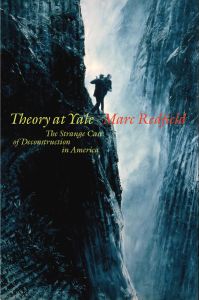Look Round for Poetry
Untimely Romanticisms

This book can be opened with

Poetry is dead. Poetry is all around us. Both are trite truisms that this book exploits and challenges.
In his 1798 Advertisement to Lyrical Ballads, William Wordsworth anticipates that readers accustomed to the poetic norms of the day might not recognize his experiments as poems and might signal their awkward confusion upon opening the book by looking round for poetry, as if seeking it elsewhere. Look Round for Poetry transforms Wordsworth’s idiomatic expression into a methodological charge. By placing tropes and figures common to Romantic and Post-Romantic poems in conjunction with contemporary economic, technological, and political discourse, Look Round for Poetry identifies poetry’s untimely echoes in discourses not always read as poetry or not always read poetically.
Once one begins looking round for poetry, McGrath insists, one might discover it in some surprising contexts. In chapters that spring from poems by Wordsworth, Lucille Clifton, John Keats, and Percy Bysshe Shelley, McGrath reads poetic examples of understatement alongside market demands for more; the downturned brow as a figure for economic catastrophe; Romantic cloud metaphors alongside the rhetoric of cloud computing; the election of the dead as a poetical, and not just a political, act; and poetic investigations into the power of prepositions as theories of political assembly.
For poetry to retain a vital power, McGrath argues, we need to become ignorant of what we think we mean by it. In the process we may discover critical vocabularies that engage the complexity of social life all around us.
Look Round for Poetry is an essential contribution to the conversation about literary theory ‘after’ theory. McGrath’s book is learned but written with a light touch, engaging but sincere, and it does a particularly nice job of linking Romantic poems to contemporary crises in a way that avoids opportunism while providing genuinely topical insight.—Anahid Nersessian, author of Keats’s Odes: A Lover's Discourse
McGrath offers powerful reflections on recent debates about the nature of Romanticism and its legacy, as well as an eloquent defense of poetry—as thinking, as source of figures that structure our world.—Jonathan Culler, author of Theory of the Lyric
McGrath’s sophisticated, nuanced readings powerfully endorse his charge to read poetically and skillfully reveal the surprise of poetry and of its difficulty and untimeliness. This insightful study should be of great interest to scholars of Romanticism and poetry but also to those interested in new formalism, literary theory, and the future of literary studies.—Choice Reviews
. . . McGrath's book unfolds invaluable layers of meaning and his "look[ing] round for poetry" proves most rewarding. . . readers can certainly benefit from his informed, penetrating analyses and from the clarity and brevity of his style: virtues too often neglected now in favor of critical obfuscation.—Review 19
. . .[A] glorious call to read subversively and experimentally, and thereby to reinvigorate poetry by deliberately blinding oneself to what one thought poetry makes possible in hopes of seeing poetic making anew.—Modern Philology
Introduction | 1
1. Understating Poetry | 23
2. The Poetics of Downturns | 41
3. I Wandered Lonely as an iCloud | 61
4. On the Poetry of Posthumous Election | 82
5. Keats for Beginners | 101
6. The Grammar of Romanticism: Shelley’s Prepositions | 120
Conclusion 139
Acknowledgments | 143
Notes | 145
Bibliography | 173
Index | 187




